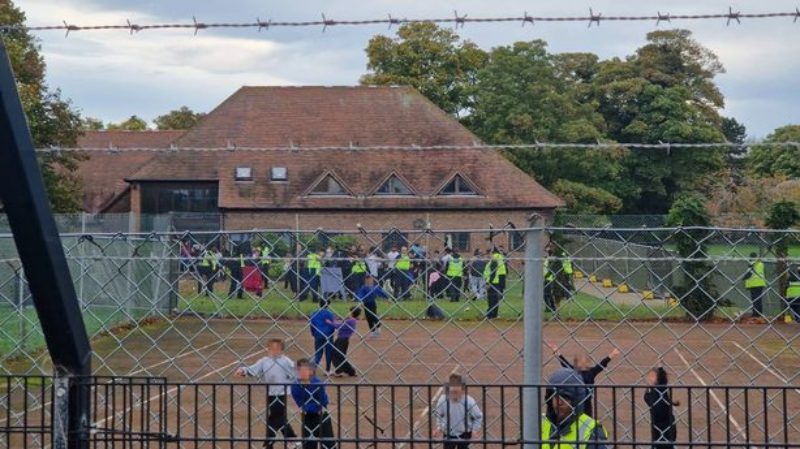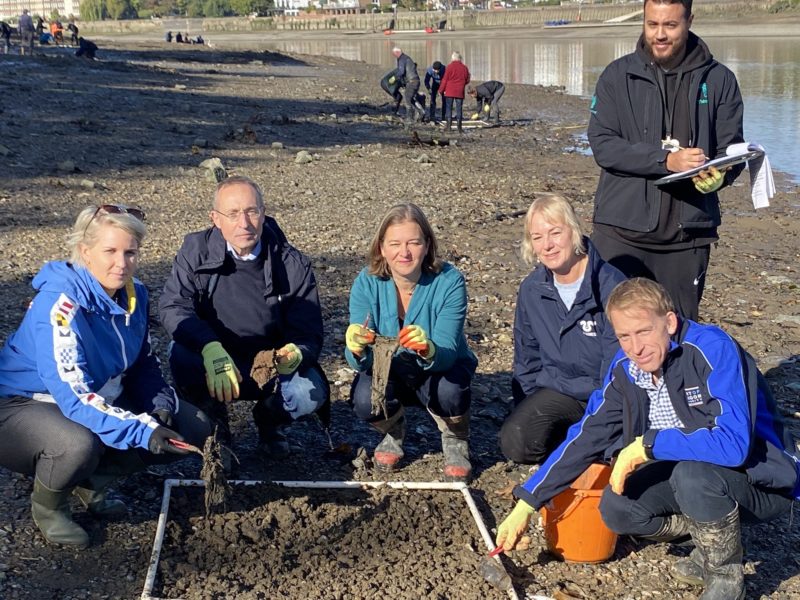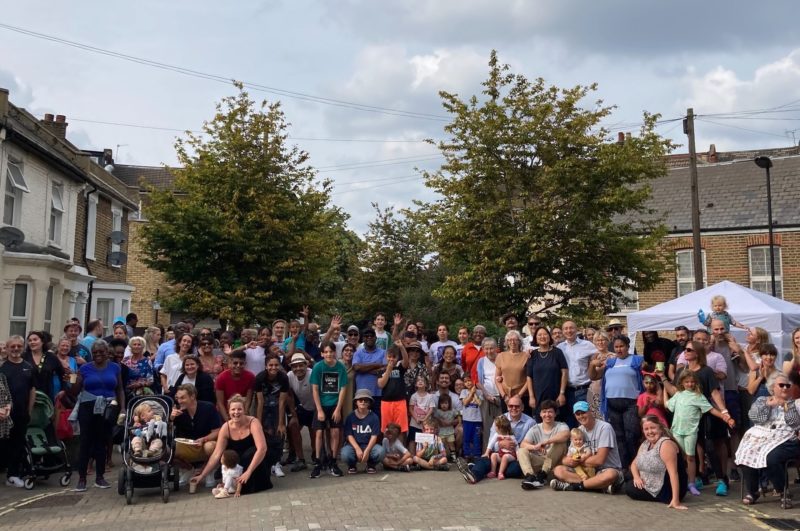Andy Slaughter Labour MP for Hammersmith

Permacrisis, ‘an extended period of instability and insecurity’, is the Word of the Year 2022. But if the word is new, the phenomenon isn’t. The full political implosion dates from the 2016 vote to leave the EU, though the seeds can be found in austerity and Cameron’s selfish promise to hold the referendum to buy off his mutinous Brexiters. Six years, two general elections and five governments later self-inflicted wounds have been deepened by the pandemic, a European war and now economic meltdown.
How much of this was bad luck or beyond the government’s control and how much could have been prevented? Arguably more attention to biosecurity could have limited the spread of Covid or a tougher response to Putin over Crimea might have made him wary of full-scale invasion. Other mistakes are more obvious. Brexit, especially a Brexit that severs so many links with our main trading partners, is an own goal. There is clear evidence that it is damaging the prosperity of the UK at the worst possible time. And if there is any non-economic benefit, I have yet to hear it.
The Truss regime, in a matter of days, caused lasting damage to the economy and to the financial security of every household. That is unprecedented for any government. A wilful act of impoverishment for which alone no further time in office should be offered to the Conservative Party. We are promised eye-watering tax rises and public service cuts in the next attempt at a budget on 17 November. Part of that pain is only happening because of a childish experiment by Truss and Kwarteng.
If we can argue about some of the causes of the Permacrisis, there is little to deny that successive Conservative governments have failed to rise to those challenges and in some cases have made the situation worse. The death toll from Covid and its concentration in care homes and poorer areas is now being examined in the public inquiry.
We are far from being the only country to suffer from poor governance, but I cannot remember a time when it was this bad at Westminster. Cronyism and corruption were features of the Johnson regime, from public contracts for mates to turning a blind eye to law-breaking and abusive behaviour. This did ultimately bring him down, but only last month he looked set to make a comeback in the most sensationalist manner, flying in from his Caribbean bolthole expecting a coronation.
A toxic combination of incompetence and extreme ideology saw the pantomime continue for a short run under Truss. Now we are asked to believe a Sunak government will be different. I think the scales have dropped from voters’ eyes: they have heard this story once too often and are not just embarrassed by events at Westminster but feel the consequences in their everyday living standards and the declining quality of services.
For in truth it is the same failed and compromised ministers being recycled into – in many cases – the same jobs they were sacked from a few weeks ago (with a minimum £10k golden goodbye to reward that failure). Nowhere is this clearer than in Suella Braverman’s reappointment as Home Secretary.
Two things are remarkable about this episode. Firstly, she was unfit to hold the position in the first place. She was sacked (by Truss!) for leaking sensitive information. Her explanation for this is incredible and she both contradicted herself and used weasel words to avoid answering questions about her conduct. Now we discover she was also breaking the law and causing deliberate harm and distress to vulnerable asylum seekers in an effort to impose her own extreme policies on immigration.
Secondly, her reappointment was clearly not on merit, it was because of the hold she had over Sunak. When Boris Johnson claimed he had 100 MP supporters, and therefore a pass to go to a vote of Tory Party members which he would win, most people assumed he was making it up as usual. In fact he did have the votes but only just. What made him pull out was Braverman’s backing for Sunak which left him high and dry. She took a crucial number of right-wing votes with her and made Sunak the only credible candidate both in number of supporters and how they spread across the Party. Her price for supporting Sunak was the job she had been ejected from less than a week before.
The final question is not what this says about Braverman but what it says about Sunak. He is just as complicit in both the economic and moral failure of the past three governments. He was the Chancellor who raised taxes on the low paid to their highest in 70 years and paved the way for the current crisis. He is the Prime Minister who has put Braverman, Williamson, Shapps and Jenrick back at the heart of government, all people who have track records of rule breaking, dishonesty or bullying. He is the second PM to have a Covid fine. He still benefits from Infosys, the family business which maintains a presence in Russia.
He has embraced the culture wars rhetoric of Johnson and Truss – on Rwanda, on suppressing free speech and abolishing human rights. He can be blackmailed by Braverman or outflanked by Johnson over going to Cop27. He lacks experience, integrity and strength of character. We could not have a weaker leader going into the worst economic crisis for nearly a century.
Cost of living crisis deepens
According to the Bank of England we have just entered the longest recession in our history, lasting until well into 2024. Inflation is over 10%. Household incomes will drop by nearly £1,000 on average next year, but for some it will be much worse. Five million mortgage-payers will see average rises of more than £300 a month. This will knock on into rent rises. Unemployment will rise by a million. GDP will fall this parliament by 3%.
Our parliamentary system though severely taxed of late, has ways of righting itself after periods of bad government, usually by turfing out the party in power to give them a chance to sort themselves out while someone more competent takes over. But there is no way of speeding this process up. We could be stuck with Sunak – or PM No 4 (Johnson again?) for two more years. I hope not as I think Keir Starmer, Rachel Reeves, Yvette Cooper and the rest of the shadow cabinet are ready to take over now. But at whatever stage the election comes there is a long road to recovery ahead.
In the meantime we have a job to do holding the government to account in parliament and doing the best to mitigate the recession in our communities. This is a twin-headed problem. Many families will be in need this winter, seeking help with bills or just with having enough food or warmth. The council has put together a network of support. But our public services are also facing unprecedented hard times and shortages of money and staff at the same time as pressures on them are at their highest. Nowhere more so than the NHS.
Under pressure
NHS clinicians with 30 years’ experience tell me they have never been so worried going into winter. The head of the NHS thinks the pressure is greater than at the height of Covid. A combination of backlogs in elective care, delays in social care, exhausted, underpaid staff covering for record vacancies and not enough cash is putting healthcare in an intolerable position. We will find out not from the Health Secretary but the Chancellor whether this is a government committed to the NHS. The crisis extends to primary care, dentistry and ophthalmology.
Imperial is performing better than many hospital trusts around the country in everything from ambulance waiting times to tackling the backlog and attracting new funding, but this is all relative. Services are still under huge pressure here and there is no sign of the money promised to refurbish Hammersmith and Charing Cross – Johnson’s so-called new hospitals fund. Just this week Charing Cross had network failures and St Mary’s suffered flooding.
Policing is also stretched. I am getting increasing reports of anti-social behaviour everywhere from Shepherds Bush to Lillie Road often combined with more serious crime, some gang-related. The council law enforcement team are proving a visible presence on the streets, but a lot of crime needs police response. It is taking time to recruit and train officers of sufficient standard to replace those sacked under austerity and there are concerns about the vetting process.
Schools are under intense pressure. In Hammersmith there will be a total cut of £1,741,308 next year equivalent to £173 per pupil.
Here is part of a letter I received from one local primary this weekend:
You are no doubt aware of the growing financial hardship many schools across the country face because of steeply rising costs and the lack of government funding to meet those costs. Analysis by the Institute for Fiscal Studies shows that, on current government spending plans, schools will be receiving 3% less funding per pupil in real terms by the end of this parliament in 2024/25 than they were 15 years previously in 2010. Colleges will be receiving 11% less funding, and funding for school sixth forms will be 27% lower than in 2010.
Our school is one of those affected. Unfortunately, the cuts have had an immediate effect, three staff will be leaving us at Christmas and we are making a decision regarding three further redundancies.
We are gravely concerned for our future financial sustainability, the potential impact this will have on the life chances of children and young people, and the long-term damage that lack of educational investment will cause to national economic growth and stability. As such, we appeal to you to impress upon the government the importance of improving the funding for schools and colleges in the Autumn Statement on 17th November.
Also this weekend, the Arts Council announced its funding for the next three years. London was punished in a highly political and vindicative way. ENO, Barbican, Donmar, the Gate and Hampstead lost all their core funding. Southbank, ROH and the National Gallery saw their budgets slashed. These are some of the best cultural venues in the UK and internationally. The Bush and the Lyric were spared the cull, but will now be competing with those venues which lost funding for what resources are still available.
International Affairs
The brutal invasion of Ukraine continues, and while there has been positive news from the front lines, I am fearful that Putin’s behaviour may become increasingly erratic as his health deteriorates and his situation worsens.
The recent election in Israel resulted in a worrying victory for the hard right of Israeli politics. This lurch towards extremism could have a devastating impact on the region, with the potential to completely derail the already vulnerable peace process. Closer to home, Italy also has a far-right Government.
On climate change, the news is mixed. The heartening election of Lula in Brazil will hopefully bring about a complete reversal of the policies of Bolsonaro towards the rainforest, who oversaw the destruction of swathes of the Amazon.
The stakes at Cop27 couldn’t be higher, with the UN’s environment agency recently announcing that there was no credible pathway in place to limit warming to 1.5C. Sunak’s u-turn on attending was welcome, but he needs to do much more to show that he takes climate change seriously.
Local issues

The Bridge continues to defy attempts to move forward to a full reopening though we do know a lot more about where the barriers to progress are. The work underway is the council scheme to strengthen the existing structure to avoid any further full closures. The Council is also almost ready with its proposal for a speeded up rebuild of the main structure and a temporary roadway while this happens. It has developed a business case for approval by the Department for Transport. In theory this should mean progress, but it requires the Government to pay its and Transport for London’s share (perhaps £90 million) and to agree a toll to cover the council’s share. This is like getting blood out of a stone. At least Shapps has gone from Transport – he seemed only to play politics with the issue – and I have asked to take a delegation of MPs to see the new Transport Secretary (of course this person has changed again but we persevere).
I get a lot of mail about cycle lanes – not all of the same mind. So I am pleased the council is consulting on these, as is Hounslow. Here’s how to respond.
Opposite Furnivall Gardens is the now notorious Wet Wipe Island, a mass of soiled cloth the size of two tennis courts. With Thames 21 and Putney MP Fleur Anderson (who has a Bill in parliament to require these are biodegradable) I spent a morning counting wet wipes to show how destructive they are of the environment. Once the Thames Tunnel opens, hopefully in two years’ time, we should be virtually free of sewage discharge on this stretch of the Thames, so this is a good time to start clearing it up.
There are too many planning issues to do justice to here. I recommend following the Hammersmith and Fulham Societies whose knowledge and judgment are usually sound. Controversial sites to look out for include Earl’s Court where the developer is talking about blocks up to 45 storeys, M&S in King Street which would become a food store only with several hundred student flats on top, and Scrubs Lane where the development corporation is handing out consents on dense developments with little affordable housing.
New housing is always a cause celebre in H&F. We desperately need new homes that are affordable to local families. I am pleased to see the council is making progress here: new developments at Hartopp and Lannoy, Edith Summerskill, White City Central, and EdCity are bringing social housing to exactly where it is needed. But meanwhile housing associations – hit by financial problems including the need to remove cladding and improve other fire safety measures are selling off empty properties rather than re-let them.
Developers should provide between a third and a half affordable homes in schemes of 10 units and above, but many try to get out of this. I have just objected to one scheme with only 20% affordable homes (though this is better than the 5% the Conservatives used to request when they ran the town hall).
Meanwhile more and more families as well as young people and others who can’t afford to buy or to access social homes are forced into poor quality and expensive private rented accommodation. I spoke about this and how the Government’s promised reforms have stalled in the Commons last week.
Local events

College Park held its first street party for over a decade thanks to a new residents’ association that is sorting out a lot of issues from anti-social behaviour to planning up on the border with Brent.
A very happy occasion last month at St Kat’s on Westway as Lesley Tate was inducted as vicar, taking over from the outgoing vicar of more than two decades – her husband Jim.
After the days of mourning for her late Majesty the Queen, Hammersmith & Fulham held its own local ceremony in Ravenscourt Park to proclaim the new King Charles III.
Refugee Tales held a reception in parliament as part of their campaign for better rights for refugees. I met some local Hammersmith residents there and the families they are supporting and agreed to join one of their Refugee Walks this autumn. H&F continues to support hundreds of people in need from Ukraine, Afghanistan, Iran, Iraq, Syria and many other countries. The census figures released this week show almost half of residents were born outside the UK.
Finally, a former Archbishop of Canterbury, Rowan Williams, and the new Irish Ambassador, Martin Fraser, came to Bedford Park to unveil a statue to one-time resident W B Yeats.
If you are wondering why I am playing truant in Chiswick, I had one foot in my old constituency of Ealing, Acton & Shepherds Bush and one in the new constituency of Hammersmith & Chiswick where I hope to be standing if there is an election under new boundaries announced today, which take effect from next July. Sadly, this will mean saying goodbye to College Park & Old Oak, Wormholt, Fulham Reach and West Ken – where I was first elected as a councillor in 1986. But let’s not get carried away. There is no point anticipating next week’s politics at present let alone next year’s.
However, I would like that General Election.
